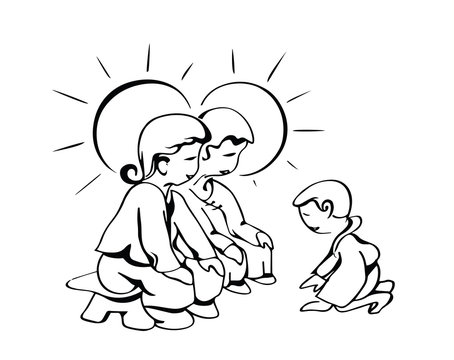Exploring the Concept of “Beholden”
In a world where connections and obligations intertwine, the concept of being beholden holds significant weight. From its historical roots to its modern-day implications, understanding this term enriches our comprehension of human relationships and societal dynamics.
Understanding the Meaning
Dating back to Old English, “beholden” originated from the notion of being held or kept. Initially, it denoted a sense of indebtedness or obligation towards someone or something. Over time, its meaning has evolved, encompassing not just material indebtedness but also emotional and moral obligations.
Usage in Literature and Everyday Language
Literature is replete with instances where characters find themselves beholden to others. From classic novels to contemporary prose, the theme of indebtedness resonates deeply. Phrases like “beholden to fate” or “beholden to one’s conscience” illustrate its versatility in everyday language.
Cultural and Societal Implications
The notion of being beholden permeates various cultures, influencing societal norms and interpersonal relationships. In some cultures, reciprocity is valued, while in others, it may lead to complex power dynamics. Balancing gratitude with the burden of obligation is a delicate dance in human interaction.
Psychological Perspective
Psychologically, feeling beholden can evoke a range of emotions, from gratitude to resentment. While acknowledging favors received is essential for social cohesion, an excessive sense of indebtedness can lead to feelings of inadequacy or manipulation.
Breaking Down Synonyms and Antonyms
Exploring synonyms like indebted, obligated, or grateful sheds light on the nuanced meanings associated with being beholden. Conversely, antonyms such as independent or free highlight contrasting concepts, emphasizing the spectrum of human autonomy.
Navigating Personal Boundaries
Maintaining healthy boundaries is crucial when navigating beholden feelings. While reciprocating kindness is admirable, it’s essential to recognize when obligations become burdensome. Effective communication and assertiveness are key in preserving personal autonomy.
Beholden in Different Cultures
Across cultures, the perception of beholden varies. While some societies emphasize communal bonds and reciprocal favors, others prioritize individual autonomy. Understanding these cultural nuances fosters cross-cultural understanding and empathy.
Practical Tips for Managing Beholden Feelings
For those grappling with feelings of indebtedness, practical strategies can alleviate the burden. Expressing gratitude, setting boundaries, and practicing self-compassion are effective ways to navigate beholden emotions in interpersonal relationships.
Impact on Decision-Making
The sense of being beholden can influence decision-making processes, leading individuals to prioritize others’ needs over their own. Understanding this dynamic is crucial for making autonomous choices aligned with personal values and aspirations.
Philosophical Reflections
From existentialist inquiries to ethical debates, philosophers have long pondered the concept of obligation and indebtedness. Engaging with philosophical perspectives enriches our understanding of the complexities inherent in human relationships.

Beholden in the Digital Age
In an increasingly interconnected world, digital interactions also entail obligations and expectations. Navigating virtual connections requires discernment and boundary-setting to prevent the digital sphere from becoming a source of undue obligation.
Navigating Professional Relationships
In the professional realm, feelings of beholden can impact career trajectories and workplace dynamics. Balancing professional favors with personal boundaries is essential for fostering healthy working relationships and career advancement.
Conclusion
In conclusion, the concept of being beholden encompasses a spectrum of emotional, moral, and societal implications. Navigating these complexities requires self-awareness, empathy, and effective communication. By understanding and managing beholden feelings, individuals can cultivate healthier, more fulfilling relationships and lead lives aligned with their values.
Unique FAQs
- How do you differentiate between feeling grateful and feeling beholden? Gratitude stems from a sense of appreciation, while feeling beholden implies a sense of indebtedness or obligation. Gratitude is freely given, whereas beholden feelings may come with an expectation of reciprocity.
- Can feeling beholden negatively impact mental health? Excessive feelings of indebtedness can lead to stress, anxiety, and a diminished sense of self-worth. It’s essential to recognize and address these emotions to maintain mental well-being.
- Are there cultural differences in how beholden feelings are perceived? Yes, cultural norms significantly influence how beholden feelings are understood and expressed. In some cultures, reciprocal favors are expected, while in others, individual autonomy is prioritized.
- How can one navigate professional obligations without feeling beholden? Setting clear boundaries, communicating effectively, and prioritizing self-care are essential for navigating professional relationships without succumbing to undue obligation.
- What role does reciprocity play in beholden relationships? Reciprocity is often inherent in beholden relationships, where favors are exchanged with the expectation of mutual benefit. However, it’s crucial to ensure that reciprocity is balanced and voluntary, rather than coercive.
